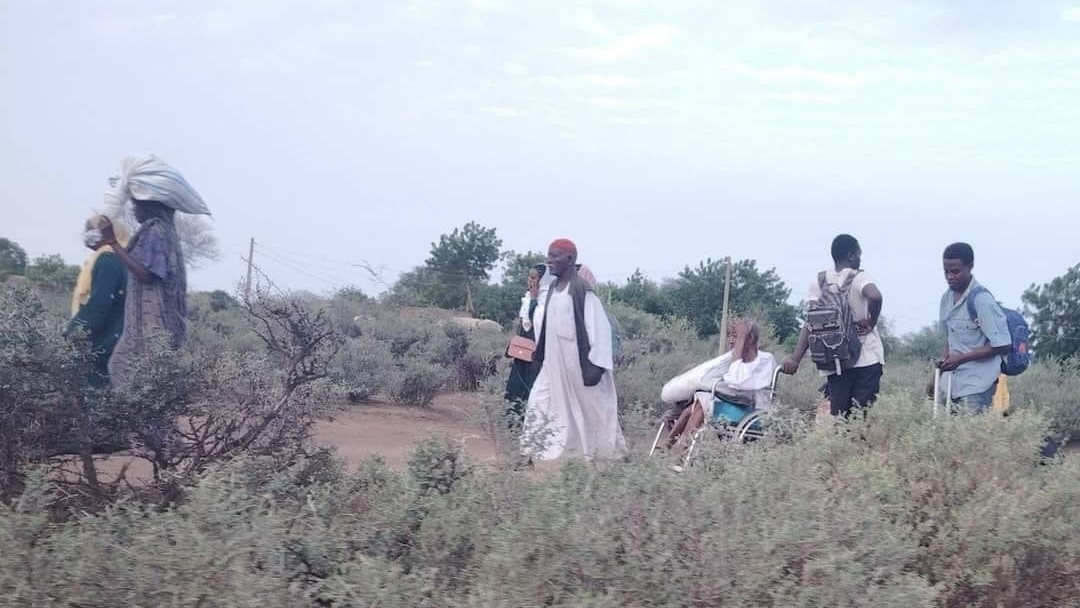During the press conference, the speakers explained that the ongoing civil war between the Sudanese Armed Forces (SAF) and the Rapid Support Forces (RSF), with roots in the Janjaweed, was triggered by a social and economic conflict of interests over national resources creating a social class conflict.
This conflict erupted between political movements, who were supposed to lead the transitional period and implement the motto of the Sudanese revolution that succeeded in toppling former Sudanese president Omar al-Bashir in 2019.
Sudan’s natural resources, including fresh water, precious minerals like gold, silver and uranium, wide areas of fertile agricultural lands and even the quality of Sudan’s soil have been coveted by regional countries, namely Egypt and the United Arab Emirates (UAE). The climate of Sudan also made it a focus of attention amid the global climate change phenomenon.
The geographical location of Sudan in terms of Nile headwaters, and the fact that it links the Mediterranean sea and the Red Sea with the Indian and Pacific oceans in the south was another factor to make it targeted by these countries. In terms of human heritage, Sudan enjoys cultural variety that has developed through different civilizations which made it a target as well.
While Egypt has backed SAF in the ongoing civil war to maintain its alliance with Sudan in its dispute with Ethiopia, the UAE has backed the RSF providing it with advanced weaponry to achieve political hegemony.
The UAE aims at undermining any endeavors towards democracy, by dissolving Sudan’s transitional government, which was seeking to achieve the motto of the revolution, namely, freedom, justice, and peace. Egypt and the UAE Niamat argued, have been fueling the armed conflict in Sudan, in a way that serves global capitalism and the interest of [neo]imperialist powers.
The danger of the UAE’s support to RSF stems from enabling them to control Sudan’s western borders, and allowing mercenaries to infiltrate into the Sudanese territories to fight. These mercenaries along with RSF have been forming armed groups with an extremist Islamist ideology.
Furthermore, remnants of the political Islam ideology, which has not been fully dismantled during the transitional period, has re-emerged in Sudan calling for its own demands through the military institution, i.e. SAF. These demands conform with global capitalism.
“The ongoing war in Sudan is not a purely military conflict between the official army in Sudan and other paramilitary groups. It is a conflict between two powers who succumbed to regional actors to serve their economic and political agenda,” Kuku said.
The warring parties worked on mobilizing the masses including social, economic and political movements to gain support. While political Islam formed the mass base for SAF, the RSF has also worked to create their own mass base, especially after signing the Juba Peace Agreement in 2020.
The warring parties resorted to armed conflict to resolve the social, economic and political conflict of interests in Sudan. Each warring party is planning to exterminate the other to take over in Sudan, and eliminate the transitional government and its motto.
Niamat Kuku remarked that the ongoing civil war will divide Sudan according to the existence of economic resources in each region, and connect it to the global capitalist system instead of using the resources to revive Sudan’s economy and end poverty.
[…]
Sudan has become a battlefield for the conflict over resources in a way that serves [neo]imperialism, neoliberalism and global capitalism. The Zionist entity has benefited from the war in Sudan as it aims at controlling Nile headwaters too. Israel has supported Egypt’s intervention in Sudan. In return Egypt has supported Israel in blocking the border crossings of Gaza. While the international community is allowing aircrafts to supply warring parties in Sudan by weapons, it does not allow aircrafts to drop humanitarian aid.

